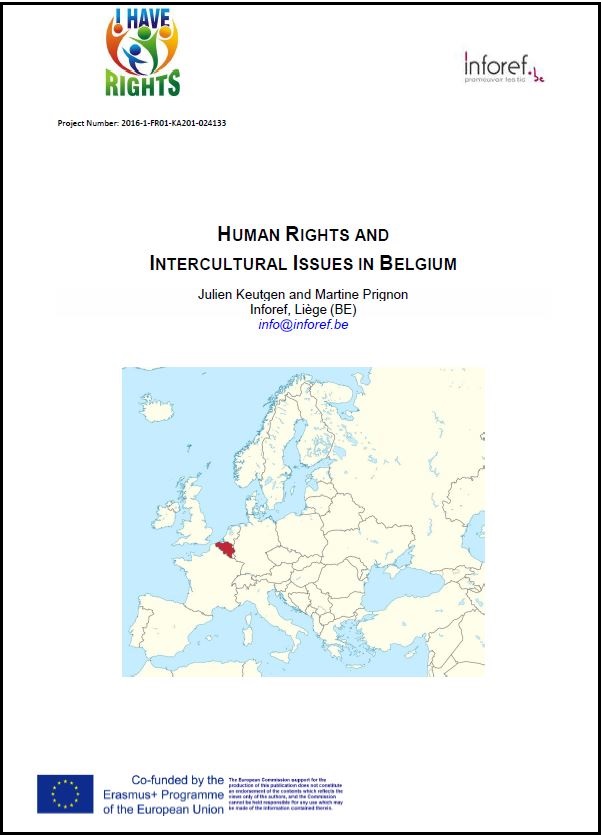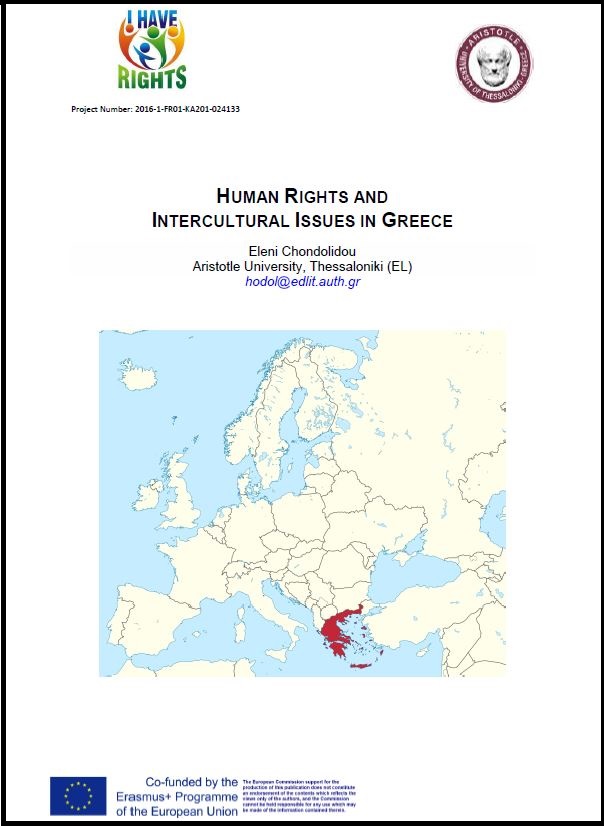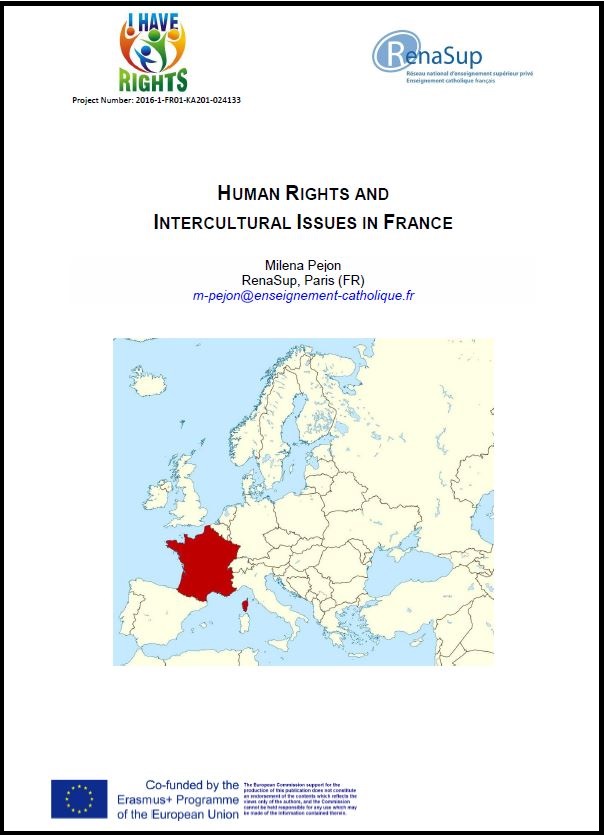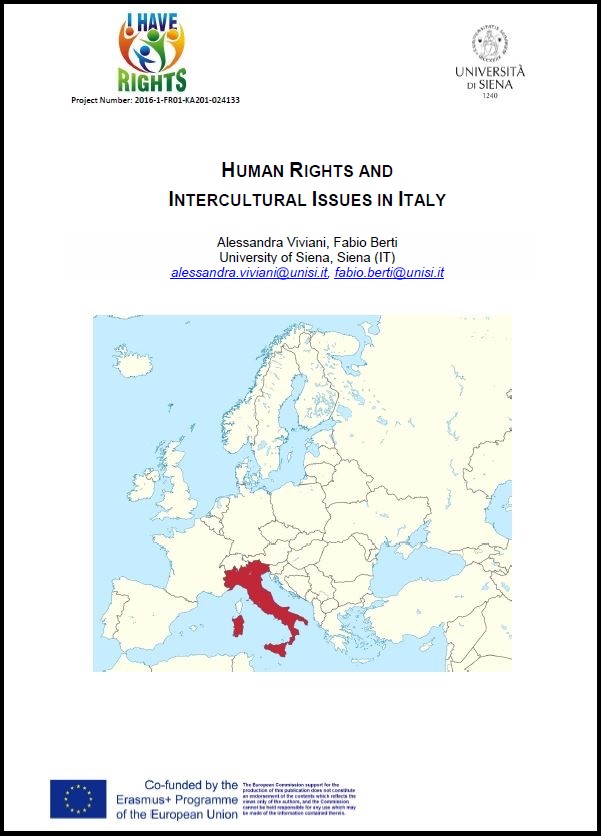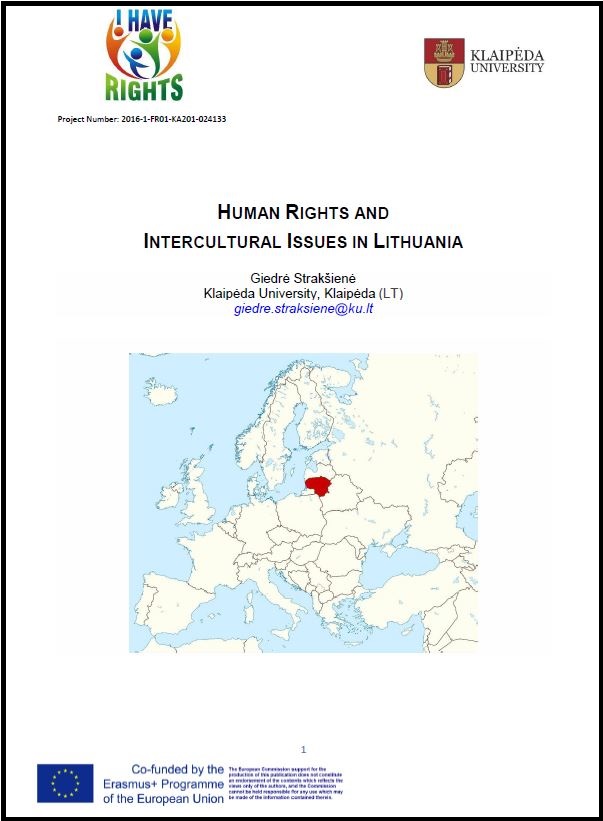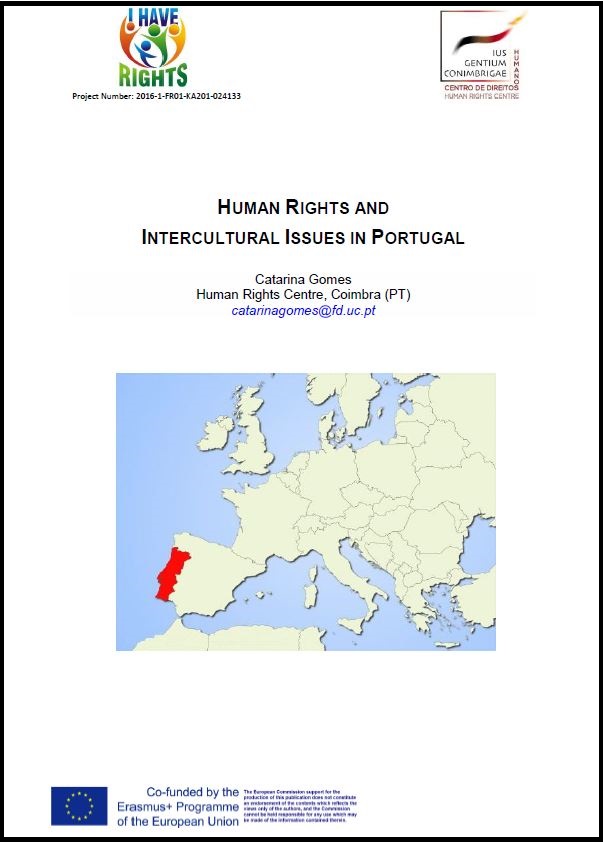
Towards the Recognition of
Non-discrimination Principles at School
-
 Case Studies
60 case studies identified through Europe focusing on intercultural issues, integration, non-discrimination values and human rights at school
Case Studies
60 case studies identified through Europe focusing on intercultural issues, integration, non-discrimination values and human rights at school
-
 Best Practices
12 best practices have been identified throughout Europe on intercultural competences and human rights at school
Best Practices
12 best practices have been identified throughout Europe on intercultural competences and human rights at school
-
 Reports
6 reports presenting the main findings related to the survey on human rights and intercultural issues carried out in the partners' countries
Reports
6 reports presenting the main findings related to the survey on human rights and intercultural issues carried out in the partners' countries
-
 Factual Background
Guidelines on the challenges encountered by secondary school teachers in managing multicultural classes
Factual Background
Guidelines on the challenges encountered by secondary school teachers in managing multicultural classes
-
 Teachers in a Multicultural Environment
Guidelines on improving teachers’ skills in dealing with multicultural environments
Teachers in a Multicultural Environment
Guidelines on improving teachers’ skills in dealing with multicultural environments
-
 Teachers for an Inclusive School
Guidelines on the acquisition of intercultural competences based on understanding human rights and non-discrimination values
Teachers for an Inclusive School
Guidelines on the acquisition of intercultural competences based on understanding human rights and non-discrimination values
Events
The I Have Rights project has been promoted trough conferences and articles.
-
 Conferences
The I Have Rights project was presented in a number of events in order to report about the activities carried out and the results achieved
Conferences
The I Have Rights project was presented in a number of events in order to report about the activities carried out and the results achieved
-
 Training Activity
The training activity 'Expert in Multicultural School Environment' was organised in Siena (IT)
Training Activity
The training activity 'Expert in Multicultural School Environment' was organised in Siena (IT)
-
 Press Review
The I Have Rights project partnership made contacts with web sites focusing on the fields of education
Press Review
The I Have Rights project partnership made contacts with web sites focusing on the fields of education
Partnership
-
 Contractual Partners
From this section it is possible to access to a description of each contractual partner of the I Have Rights project.
Contractual Partners
From this section it is possible to access to a description of each contractual partner of the I Have Rights project.
-
 Schools
From this section it is possible to access to the information about the schools involved in the I Have Rights Project in the 6 European countries involved.
Schools
From this section it is possible to access to the information about the schools involved in the I Have Rights Project in the 6 European countries involved.
-
 Associated Partners
As a result of the exploitation activity a number of associated partners officially joined the project in order to contribute to the improvement of the project impact on their target groups and to ensure the project sustainability by continuing using the project deliverables in the next years.
Associated Partners
As a result of the exploitation activity a number of associated partners officially joined the project in order to contribute to the improvement of the project impact on their target groups and to ensure the project sustainability by continuing using the project deliverables in the next years.
This section of the I Have Rights portal provides administrative information for the project contractual partners and for the European Commission and it is password protected.
Reports
Homepage > CaseStudies > Reports

The reports presents the main findings related to the survey on human rights and intercultural issues carried out in 6 European Countries. The survey involved around 900 teachers and 3 000 students
Human Rights and Intercultural Issues in Partners’ Countries
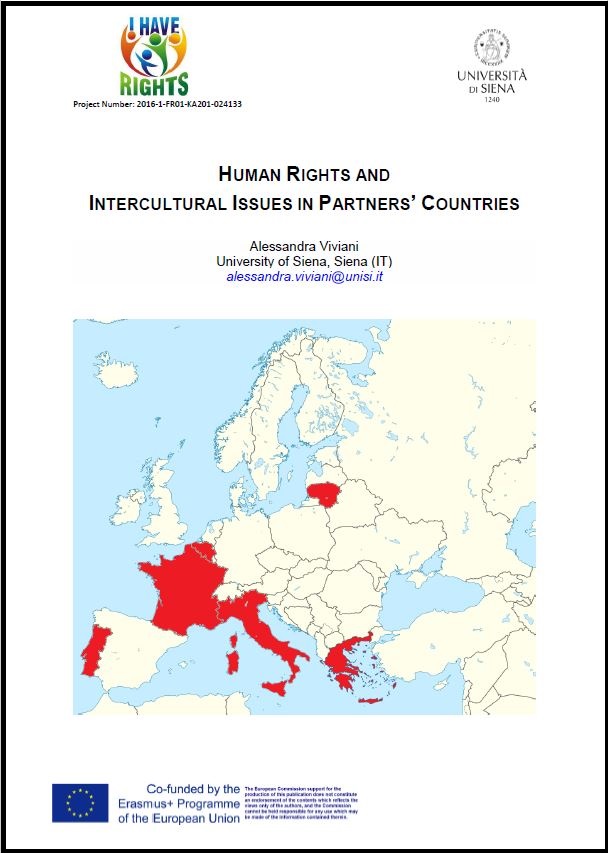
The 6 countries forming the IHR Partnership cover a wide geographical area in Europe, each of them with its own historical, political and socio-economic background, but they definitely share the same challenges as far as recent migration issues are concerned. In such a context IHR is focusing on giving its contribution towards making schools places where diversity is respected and the integration of foreign and migrant students is facilitated. The IHR survey represents the starting point of this ambitious process.
The students' questionnaire shows that in the first 2 years of upper secondary school more typologies of students are present (i.e. national, newly and recently arrived migrants, second generation migrants). Thus (although with some differences between partner countries) multicultural environment is today a firmly established reality. Most of the students show a certain degree of open mindedness when answering to questions related to multicultural issues, in particular they declare to be ready to consider “diversity” not necessarily as a negative concept. Nevertheless this positive result is in clear contrast with the high percentage of respondents indicating schools as places where episodes of violence, discrimination, etc. are more likely to happen. Moreover in all countries large portions of students have been involved in discrimination or violence episodes. Plus they consider the language used at school with teacher “formal-neutral”, which in our opinion describes a situation of perceived “distance” between the students and their teachers.
Show more...

